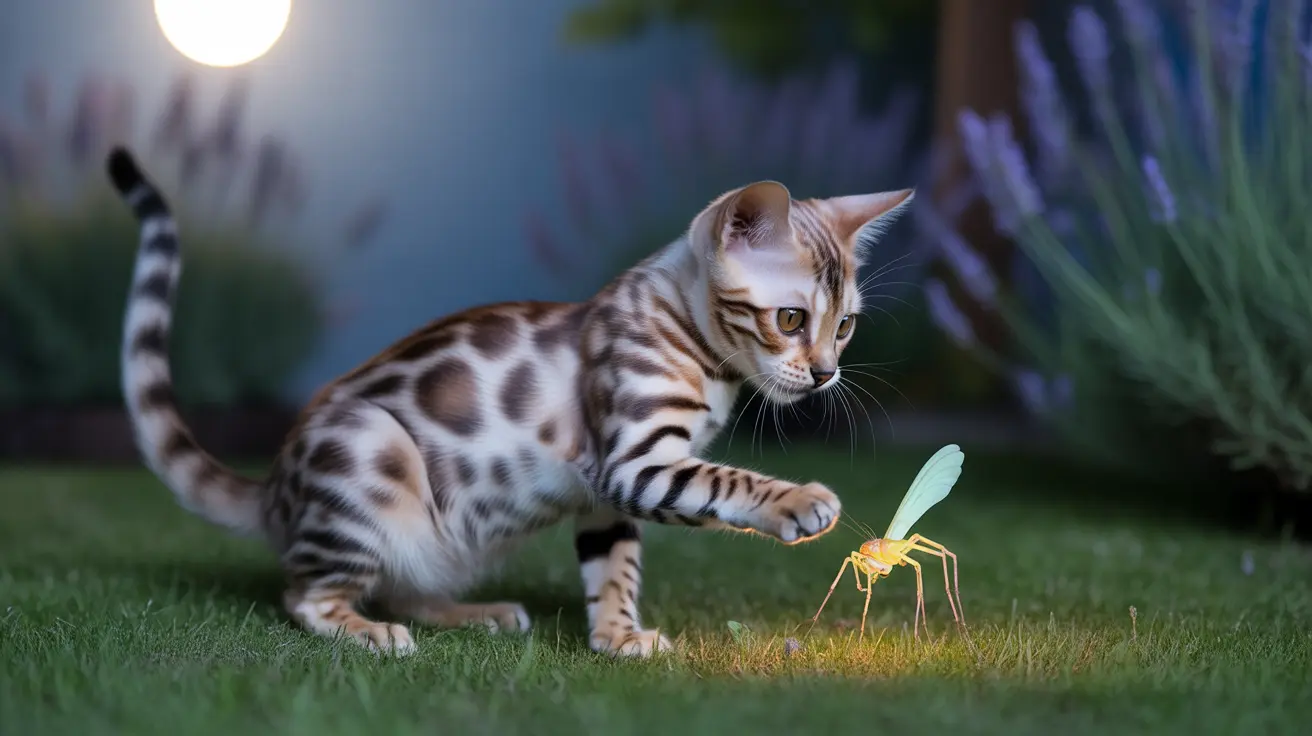Understanding Lightning Bug Toxicity in Cats
Lightning bugs produce their characteristic glow through a chemical process involving substances called lucibufagins. These same compounds serve as a natural defense mechanism, making the insects taste bitter and potentially toxic to predators, including cats.
While cats are generally less sensitive to these toxins than smaller animals like lizards or frogs, ingesting lightning bugs can still cause discomfort and illness. The severity of the reaction often depends on the number of insects consumed and the individual cat's sensitivity.
Common Symptoms After Lightning Bug Ingestion
Immediate Reactions
Within the first 15-30 minutes after eating a lightning bug, cats may show signs of immediate discomfort, including:
- Excessive drooling
- Frequent lip licking
- Pawing at the mouth
- Signs of disgust or discomfort
Digestive Symptoms
More serious symptoms may develop within 2 hours of ingestion:
- Vomiting
- Diarrhea
- Loss of appetite
- Abdominal discomfort
When to Seek Veterinary Care
While most cases of lightning bug ingestion result in mild symptoms that resolve on their own, certain situations warrant immediate veterinary attention. Contact your vet if you observe:
- Persistent vomiting or diarrhea
- Tremors or seizures
- Difficulty breathing
- Unusual lethargy or weakness
- Signs of severe distress
Prevention and Safety Tips
The best approach is to prevent your cat from eating lightning bugs altogether. Consider these protective measures:
- Keep cats indoors during peak firefly activity (dusk and early evening)
- Install secure window screens
- Provide engaging indoor activities during firefly season
- Supervise outdoor time carefully
- Redirect hunting behavior to appropriate toys
Frequently Asked Questions
Can cats get seriously sick from eating lightning bugs?
While severe illness is rare, cats can experience gastrointestinal upset and other symptoms from eating lightning bugs. The risk increases if multiple insects are consumed or if the cat has underlying health issues.
What are the early symptoms if my cat eats a firefly?
Early symptoms typically include drooling, lip licking, and possible vomiting. These usually appear within 15-30 minutes of ingestion.
How can I prevent my cat from catching and eating lightning bugs?
Keep cats indoors during peak firefly activity, use window screens, and provide alternative forms of entertainment. Supervise outdoor time carefully during firefly season.
Should I call the vet if my cat eats more than one lightning bug?
Monitor your cat closely after any lightning bug ingestion. Call your vet if you notice severe symptoms or if you're concerned about the quantity consumed.
Are lightning bugs toxic to all cats or only certain ones?
All cats can potentially react to lightning bug toxins, but sensitivity varies among individuals. Some cats may experience more severe symptoms than others.
While lightning bugs may seem like harmless insects, it's best to err on the side of caution and prevent your cat from eating them. By understanding the risks and implementing proper prevention strategies, you can keep your curious feline safe during firefly season while still allowing them to enjoy watching these fascinating insects from a safe distance.






